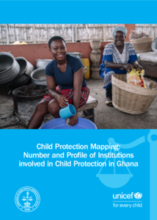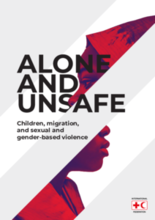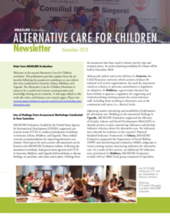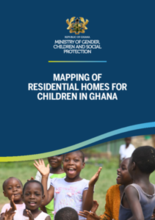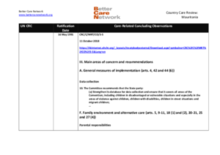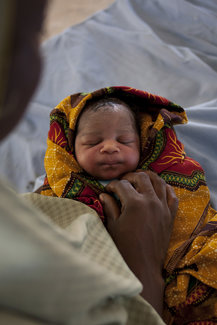

Displaying 171 - 180 of 634
This report captures the findings of a mapping exercise commissioned by UNICEF Ghana and undertaken by the Commission on Human Rights and Administrative Justice (CHRAJ). This mapping exercise sought primarily to establish the number and profile of institutions at national and sub-national levels involved in child protection.
This study seeks to improve understanding of the risks and types of sexual and gender-based violence faced by children who migrate on their own, as well as the unfortunate and widespread gaps in protection and assistance for these children.
Using a qualitative research design, 28 Practitioners’ and parents’ narratives on the perception and causes of child neglect were explored.
Scholarship on transnational families has regularly examined remittances that adults abroad send to children in their country of origin. This article illuminates another permutation of these processes: family members in Senegal who establish relations with and through children in France through gifts and money.
The alternative care for children newsletter provides updates following assessment workshops on care reform that were conducted in Armenia, Ghana, Moldova, and Uganda.
This geographical mapping and analysis of Residential Homes for Children (RHCs) in Ghana aimed to identify the “hot spots” - high concentration of RHCs and/or children in RHCs - and develop a comprehensive understanding of current trends, flows and drivers of children in RHCs in these “hot-spot” (priority) areas.
This webinar reviews some of the new and ongoing work conducted under the Transfer Project, a multi-organizational research and learning initiative. The first presentation will summarize findings from recent reviews published on understanding linkages and impacts of cash transfers and social safety nets on intimate partner violence and violence against children in low- and middle income settings.
This study from the journal of Emerging Adulthood shares positive stories of care leavers and explores the factors that promote the successful transition to emerging adulthood for care leavers in Ghana.
This country care review includes the care related Concluding Observations adopted by the Committee on the Rights of the Child as part of its examination of Mauritania's initial reports, as well as other care-related concluding observations, ratification dates, and links to the Universal Periodic Review.
This country care review includes the care-related Concluding Observations adopted by the Committee on the Rights of the Child.

